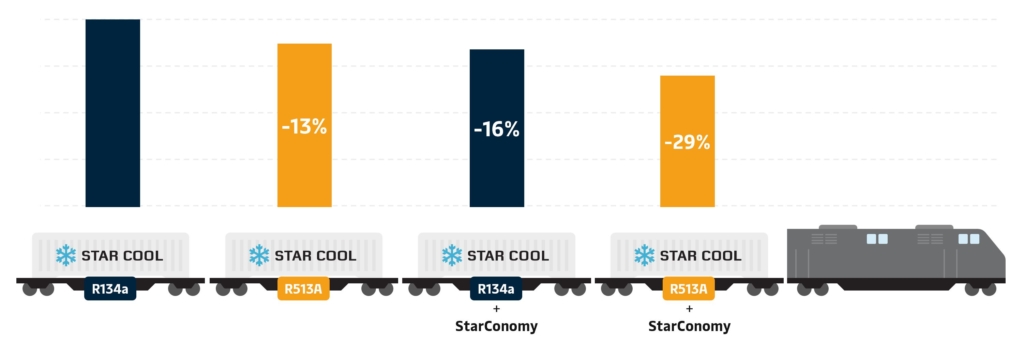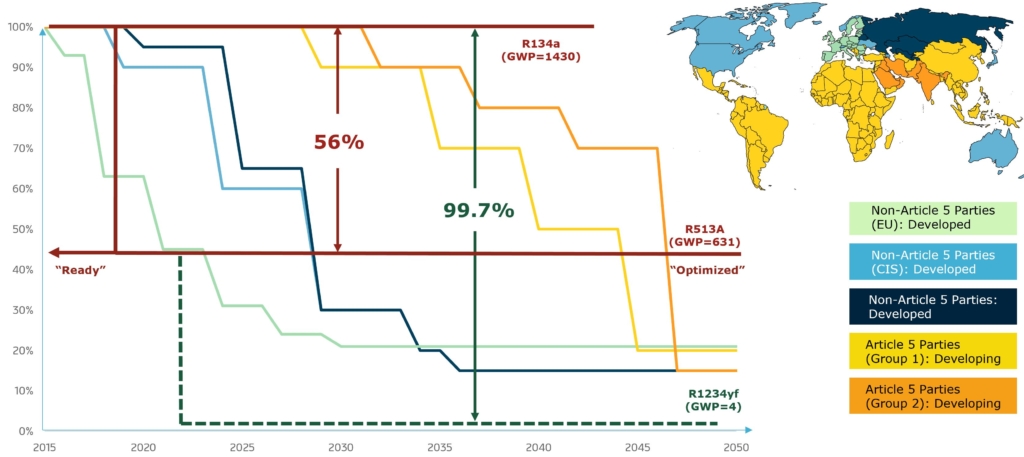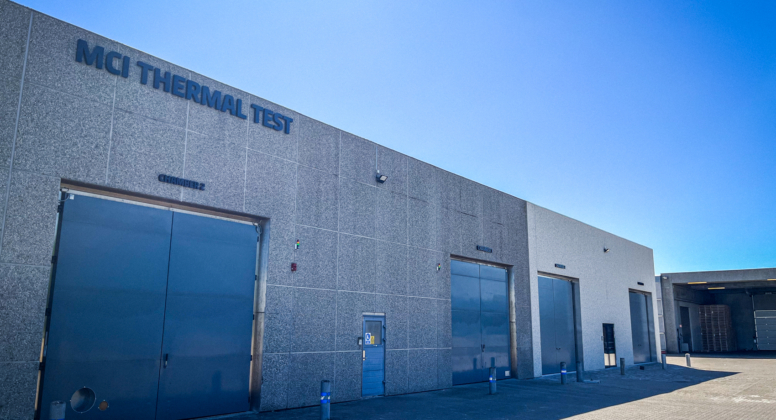Refrigerants – old
R513A – The pragmatic solution of today
By adjusting injection control, air flow and software for R513A compatibility, Star Cool offers an economically sound upgrade that can achieve a 56% reduction of GWP compared to the previously used R134a (GWP=1430). Among all A1 classified F-gases, R513A is the best choice to reduce the carbon footprint of reefer containers today.
Star Cool R513A Optimized
Factory charged with R134a, Star Cool R513A Optimized units allow you to switch the refrigerant platform at any point in time, offering a great deal of flexibility and product security when future refrigerant regulations come into force.
Engineered for reliability, the Star Cool R513A units are designed for compatibility with R513A without sacrificing performance when R134a is charged.

Upgradeability
Star Cool reefers can be ordered from new, charged with R513A or optimized for R513A. An upgrade kit can be delivered for reefers ordered before August 2017.

What influences GWP?
When entering the atmosphere through leakage, a refrigerant influences the global warming by its potential to reflect radiative heat from the earth. This potential is influenced by the molecular structure as well as its lifetime in the atmosphere and is referenced to a natural substance (CO2).
However, fossil fuels are used to power reefers on a vessel and CO2 emitted into the atmosphere also has an impact on global warming. Inefficient systems use more energy and thus generate more CO2. TEWI combines the emissions of both refrigerant and power consumption.
Total Equivalent Warming Impact
The Total Equivalent Warming Impact (TEWI) is a measure that combines the impact from direct and indirect emissions and gives a more holistic picture than a simple GWP comparison.
In particular, TEWI enables the comparison of efficiency of different refrigerant options in a specific application. For reefers, the real annual operation profile is taken into account, as they are operated mostly in hot climates and environments.
R513A is the pragmatic replacement for R134a, offering high energy efficiency and low GWP.
Reduction of F-gases under Kigali Amendment

Theoretical average GWP & EU HFC Phase-Down schedule
In many regions of the world, refrigerant regulations are coming into effect. In the case of the European Union, emissions from HFC refrigerants will be reduced by 21% in 2031. When considering today’s refrigerant quantities, a theoretical average GWP can be derived, indicating the necessary level of refrigerant GWP to comply with EU regulations.
Refrigerants with high GWP will not be explicitly banned but availability will decrease as prices will increase.


